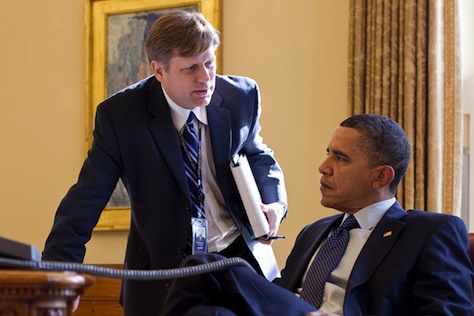If you read nothing else before the opening ceremony of the 2014 Winter Olympics in Sochi, you could do much worse than these two brilliant pieces in Foreign Policy and Politico Magazine that explain in majestic scale the state of Russia today and the nature of US-Russian relations in the 2010s, even as journalists started arriving in Sochi earlier this week and reporting the (sometimes humorous) problems with infrastructure. ![]()
![]()
The first is a profile of Michael McFaul (pictured below), the US ambassador to Russia, who announced earlier this week that he will step down following the Winter Games in Sochi, after just two years as the US envoy to Moscow. Just the second non-career diplomat in US history to hold the post, Michael Weiss writes in Foreign Policy about both McFaul’s successes and failures, but especially McFaul’s failures, evident from the first sentence:
The Kremlin, for instance, will be sad to see the nicest, most eager-to-please man to ever inhabit Spaso House quit the joint after only two years of floundering and squirming under the Kremlin’s systematic, Vienna Convention-violating sadism.
McFaul (pictured above with Obama), a professor of political science at Stanford University, previously served as US president Barack Obama’s special assistant and senior director of Russian and Eurasian affairs. The ‘reset’ concept with Russia at the beginning of the Obama administration was McFaul’s brainchild — though the US secretary of state at the time Hillary Clinton, memorably presented her Russian counterpart with a reset button inscribed with the word peregruzka (‘overload’) instead of perezagruzka (‘reset’). But it’s important to remember that McFaul was also instrumental in the successful negotiations to enact deeper nuclear non-proliferation through the New START treaty with Russia enacted in May 2010.
Weiss’s piece makes clear just how difficult it was for McFaul to adjust between ‘advocate’ mode and ‘diplomat’ mode, and most of the major ‘gaffes’ of McFaul’s tenure relate to the gap between advocate and diplomat — over-reliance on social media; meeting with a wide group of the Kremlin’s political opponents for his first official meeting; dissembling over the Magnitsky Act (which ties US-Russian trade to human rights abuses) and encouraging Russia’s accession to the World Trade Organization; or even the time he tweeted about ‘Yoburg’ (which translates to ‘Fuckville’ in Russian) instead of ‘Yeakaterinburg.’
McFaul had a style that was hard to account for or justify, as when he admitted, by way of an apology, that he was “not a professional diplomat.” This, too, had the merit of being true; but what, it prompted many to wonder, was he doing in the most difficult diplomatic posting on the planet advertising as much?
Though John Beyrle, the career diplomat who served as ambassador between 2008 and 2011, would not have made those same mistakes, he also wouldn’t have tweeted a message of support (‘I’m watching.’) to opposition figure Alexei Navalny last summer during a politically-motivated trial on trumped-up charges. Part of the charge against McFaul is that he didn’t follow the rulebook of international diplomacy, but that runs both ways — one man’s diplomatic faux pas is another man’s bravery. If, a decade from now, we look back at the August 2013 confrontation with Syria as the start of a successful model for US-Russian cooperation, the Obama-McFaul reputation on Russian relations will look drastically better (of course, that depends mostly on the cooperation of Syrian president Bashar al-Assad in dismounting his chemical weapons program and the ability of the OPCW and UN personnel to evacuate them from a country in the midst of a civil war).
Ultimately, though, the McFaul tenure coincides with what seems today like a stark deterioration in bilateral relations, even from the headier days of 2009 and 2010. Here’s the devastating kicker:
Unfortunately, he’s leaving with the Russian media portraying America as a country that tortures orphans to death, brainwashes children into becoming homosexuals, supports al Qaeda terrorists in the Middle East, eggs on neo-Nazis to overthrow the government of Ukraine, and otherwise behaves as both a bumbling colossus and a serially defrauded and discombobulated mug in world affairs.
The second piece you should read is Leon Aron’s piece in Politico Magazine explaining how the Winter Games initially came to Sochi (partly a rare English-language speech from Putin to the International Olympic Committee in 2007):
But it mostly explains why, at a price tag of between $50 billion and $55 billion, they’re the most staggeringly expensive Olympics ever (more than even Beijing’s 2008 Summer Games and more than all previous Winter Games in Olympic history): Continue reading Pre-Sochi required reading list: McFaul’s foibles and Putin’s Olympics

